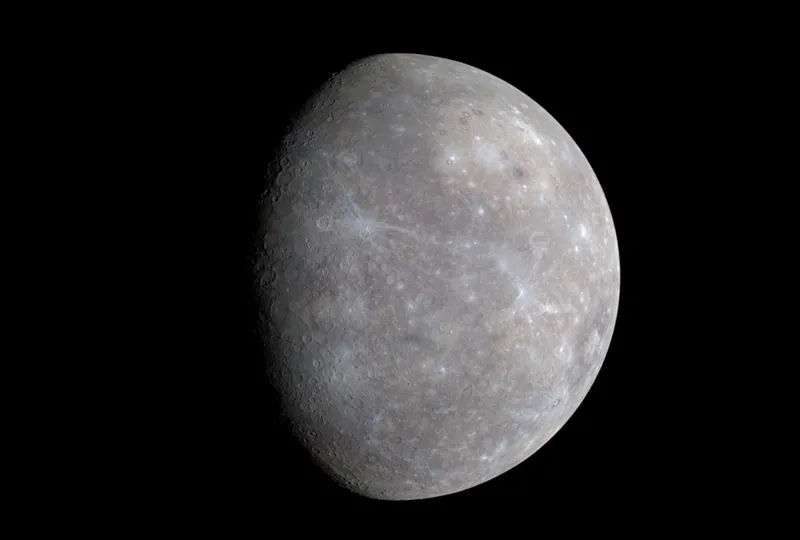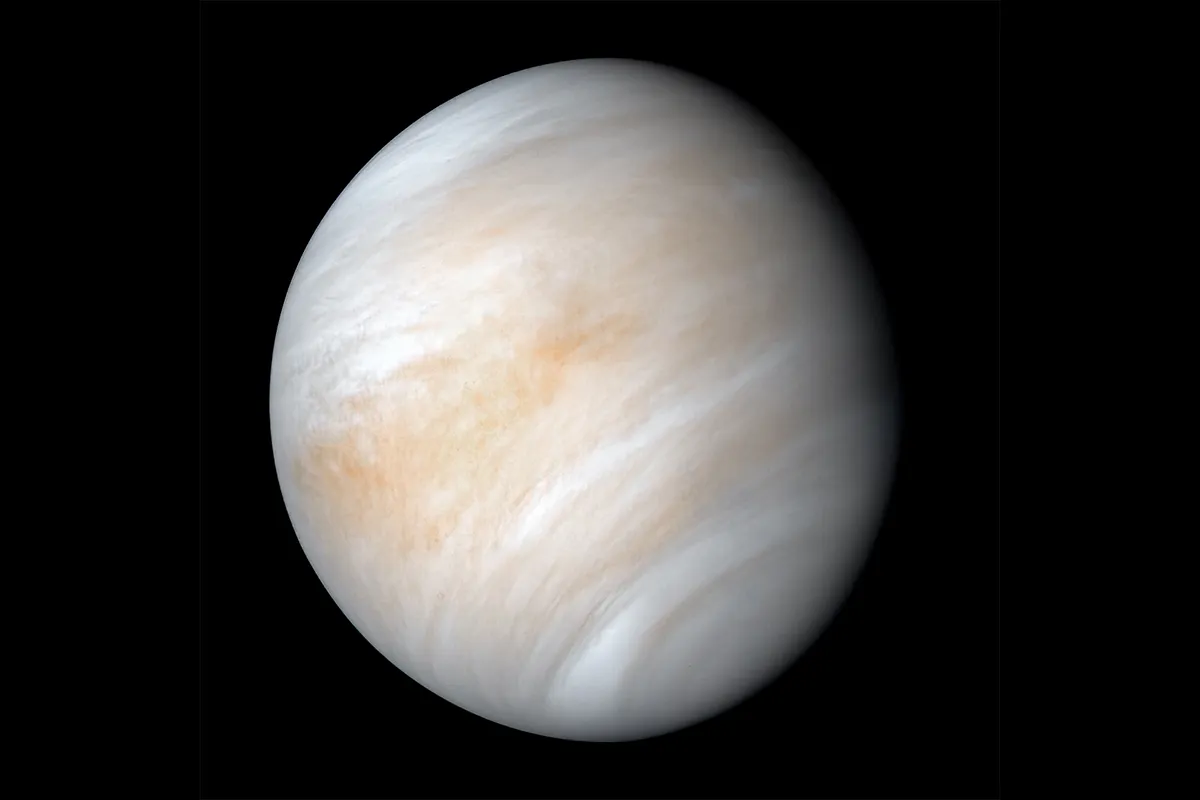You might be forgiven for assuming that Mercury would be the hottest planet in our Solar System, since it's closest to the Sun, but that title goes to Venus.
Our Sun is a massive, hot ball of plasma heated by nuclear fusion reactions in its core.
The energy from these reactions is radiated out into space, warming the bodies that orbit it.
Of all the planets in our Solar System, Mercury’s orbit brings it closest to the Sun, maintaining a distance of between 46 and 69 million kilometres from its surface.

Being the closest, we might expect that Mercury should also be the hottest.
Indeed its surface temperature can get up to a sweltering 430°C in those regions under the full glare of the Sun.
Yet the title of hottest planet in the Solar System actually goes to Venus.
Orbiting the Sun at an average distance of 108 million kilometres, the intensity of the solar radiation at Venus is much lower than at Mercury since it decreases proportionally to the square of the distance from the Sun.
One would therefore expect the temperature on Venus to be markedly lower than it is on Mercury, but in fact it averages a whopping 464°C! How is this possible?
Venus as the hottest planet explained

Venus is the hottest planet in the Solar System because of the shroud of thick atmosphere that surrounds it.
Venus's atmosphere is so thick that at the surface the pressure is almost 100 times what it is on Earth
And, importantly, it is primarily composed of carbon dioxide. Carbon dioxide is a greenhouse gas – a term given to gases in an atmosphere that raise the temperature of their planet.
They do so by absorbing infrared radiation, not only from the incoming sunlight, but emitted from the planet (as a result of absorbing solar radiation), preventing heat loss to space and consequently insulating and warming it up.
The thick, carbon dioxide atmosphere is also responsible for the lack of significant temperature differences between the day and night sides on Venus.

Doesn't Mercury have an atmosphere too?
Mercury, unlike Venus, doesn’t have an atmosphere per se, only a very thin exosphere.
This is a region of space above a planet consisting of atoms and molecules (created by solar wind interactions with its surface and meteoroid impacts) that are so few and far apart they will never collide.
Such a layer is ineffective at retaining heat and so, as the Sun sets on the surface of Mercury, it quickly cools and temperatures can plummet as low as -180°C on the night side.

Venus vs Earth
Carbon dioxide is also present in the Earth’s atmosphere, and contributes to a warmer and crucially more habitable Earth.
It may be the hottest planet in our Solar System today, but it's suggested that 4 billion years ago, the atmosphere of Venus may have been more like Earth's; perhaps even liquid water was able to run over its surface.
This serene picture was likely destroyed by a runaway greenhouse effect whereby temperatures rose, the water evaporated adding water vapour (also a greenhouse gas) to the atmosphere, further increasing temperatures and removing a key storage medium (liquid water) of greenhouse gases like carbon dioxide.
In this era of global warming on Earth thanks to increased greenhouse gas emissions by humankind’s activities, although it is unlikely to happen to the same extent here, Venus serves as a cautionary tale that we ignore at our peril.
